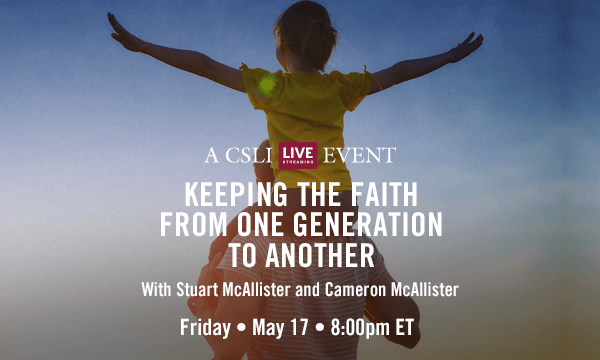Back to series

July 2016
In the autumn of 1945, C.S. Lewis received a letter from John Beddow, an Anglican priest, asking him to write a book for the Christian Workers’ Union (C.W.U.). This organization was a fellowship of working men and women between ages of 16 and 30. The members worked in places such as factories, mines and shops.1
In responding, Lewis wrote:

Thank you for your most important letter. I am very glad to learn of the existence of the C.W.U. which is exactly what is needed. And I agree that it is essential for all “literature” it issues to its members to be a translation into the actual current speech of the people (It has always seemed to me odd that those who are sent to evangelise the Bantus begin by learning Bantu while the Church turns out annually curates to teach the English who simply don’t know the vernacular language of England).
But of course I can’t write a book for workers. I know nothing at all of the realities of factory life. If one of you will write the book, I will translate it: i.e. instead of a book by me edited by you, you need a book by you edited by me. That is, if you really need me at all. But are you sure you do? People praise me as a “translator”, but what I want to be is the founder of a school of “translation”.
I am nearly forty-seven. Where are my successors? Anyone can learn to do it if they wish…2
Thirteen years later, in 1958, Lewis addressed his role as a “translator” near the end of an essay responding to a critique of his work:
My task was . . . simply that of a translator—one turning Christian doctrine, or what he believed to be such, into the vernacular, into language that unscholarly people would attend to and could understand.3
What about you? As you share the gospel with non-believers, or write or speak about Christian doctrine or current issues from a Christian perspective, do you “translate” what you have to say into the language and vocabulary the people you are communicating with understand and use?
“So with yourselves, if with your tongue you utter speech that is not intelligible, how will anyone know what is said? For you will be speaking into the air.”
I CORINTHIANS 14:9 (ESV)
1 Charles R. Forder, The Parish Priest at Work, London: Society for Promoting Christian Knowledge, 1947.
2 C.S. Lewis, The Collected Letters of C.S. Lewis, Vol. II, Books, Broadcasts, and the War, 1931-1949, edited by Walter Hooper, HarperSanFrancisco, 2004, pp. 673-674.
3 C.S. Lewis, “Rejoinder to Dr. Pittenger” in God in the Dock, Grand Rapids: Erdmans, 1998, pp. 177, 183.
 COPYRIGHT: This publication is published by C.S. Lewis Institute; 8001 Braddock Road, Suite 301; Springfield, VA 22151. Portions of the publication may be reproduced for noncommercial, local church or ministry use without prior permission. Electronic copies of the PDF files may be duplicated and transmitted via e-mail for personal and church use. Articles may not be modified without prior written permission of the Institute. For questions, contact the Institute: 703.914.5602 or email us.
COPYRIGHT: This publication is published by C.S. Lewis Institute; 8001 Braddock Road, Suite 301; Springfield, VA 22151. Portions of the publication may be reproduced for noncommercial, local church or ministry use without prior permission. Electronic copies of the PDF files may be duplicated and transmitted via e-mail for personal and church use. Articles may not be modified without prior written permission of the Institute. For questions, contact the Institute: 703.914.5602 or email us.
-
Recent Podcasts
A Welcome Change in Apologetics
by Randy Newman, Aimee Riegert on April 19, 2024We’re burdened for our friends who don’t know...Read More
-
Questions That Matter Podcast – Samuel James and Digital Liturgies
by Samuel James, Randy Newman on April 19, 2024
-
The Side B Stories – Dr. James Tour’s story
by Jana Harmon, James Tour on April 12, 2024
-
Recent Publications
Isn’t Morality Relative?
by Christopher L. Reese on April 1, 2024It is widely accepted in the Western world...Read More
-
Do Muslims and Christians Worship the Same God?
by Andy Bannister on March 1, 2024
-
Artificial Intelligence and Its Impacts on Humanity
by John Lennox on February 13, 2024
0
All Booked
0.00
All Booked
0.00
All Booked
22140
GLOBAL EVENT: Keeping the Faith From One Generation To Another with Stuart McAllister and Cameron McAllister, 8:00PM ET
https://www.cslewisinstitute.org/?event=global-event-keeping-the-faith-from-one-generation-to-another-with-stuart-mcallister-and-cameron-mcallister-800pm-et&event_date=2024-05-17®=1
https://www.paypal.com/cgi-bin/webscr
2024-05-17

Next coming event
Days
Hours
Minutes
Seconds
GLOBAL EVENT: Keeping the Faith From One Generation To Another with Stuart McAllister and Cameron McAllister, 8:00PM ET
On May 17, 2024 at 8:00 pmSpeakers

C.S. Lewis Institute
Author





